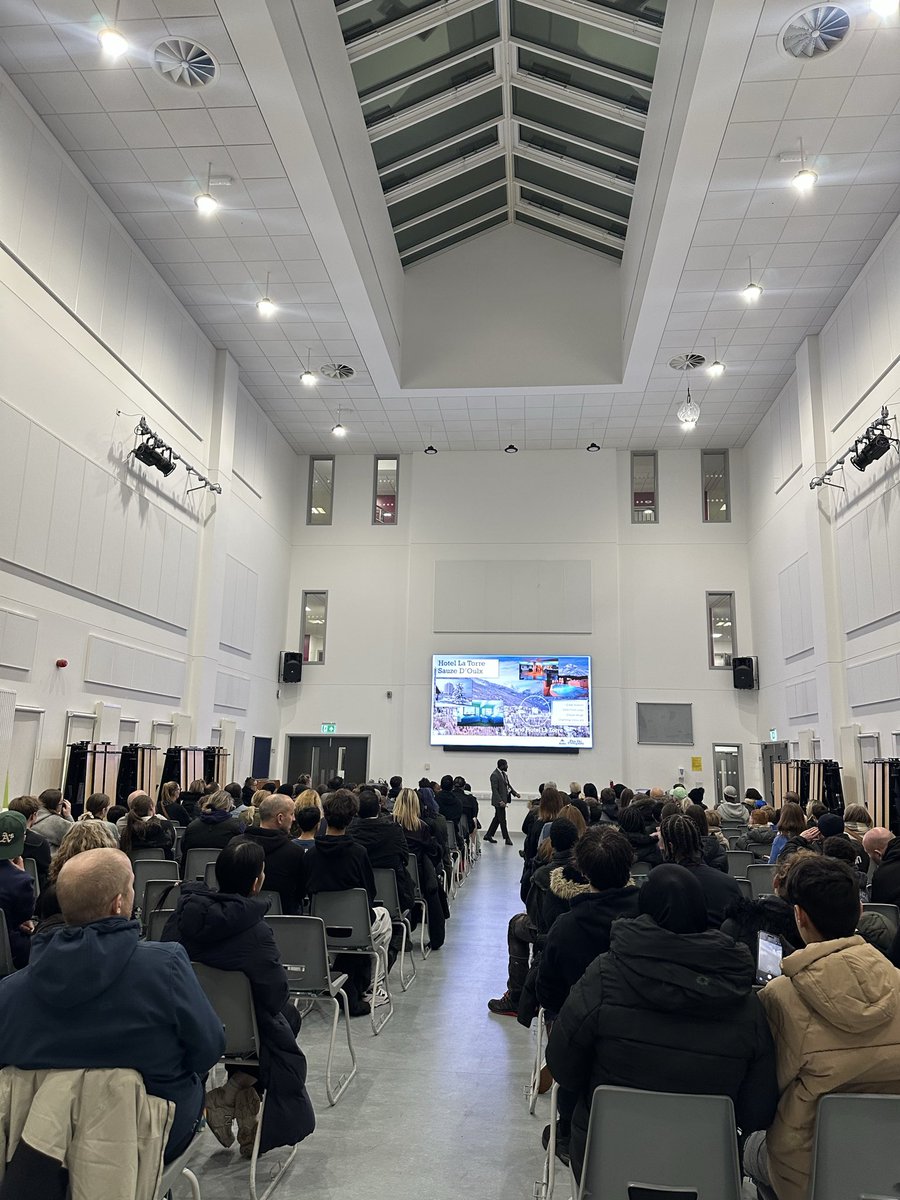RE
Curriculum Narrative: Religious Education at Harris Academy Greenwich
RE: Exam Specification
Core PRG at Harris Academy Greenwich is not assessed in a written examination. From KS4, students will have the option to choose to study RE at GCSE (Key Stage 4) and if they so choose, to progress to A Level (KS5). The exam board specifications can be found below:
GCSE: AQA RS Option A, Christianity & Islam: https://www.aqa.org.uk/subjects/religious-studies/gcse/religious-studies-a-8062/subject-content/component-1-the-study-of-religions-beliefs,-teachings-and-practices
A Level: AQA RS, Philosophy, Ethics & Buddhism: https://www.aqa.org.uk/subjects/religious-studies/as-and-a-level/religious-studies-7062/specification-at-a-glance
The Intentions Behind our RE Curriculum
The purpose of PRG at Harris Academy Greenwich is: Students of RE should master the powerful knowledge necessary to both excel in public examinations, hone written and oral skills, and become productive members of society who can live safe, happy and successful lives.
Further to the above curriculum intent, the RE lessons at Harris Academy Greenwich have been designed achieve the following:
- Cover the required knowledge that will allow all students the potential to achieve a grade 9 at GCSE, and an A* at A Level.
- Fulfil our moral obligation to do all that we can to shape our students in ways that allow them to be productive members of our diverse and multi-cultural society, by ensuring that our students develop an in-depth understanding during their time in school.
- We provide our students with the knowledge to go out into the world being knowledgeable of the cultural and religious beliefs that affect so much of daily life, from annual holidays to the basis of British law.
- Overall, we hope that the future leaders, business owners and compassionate citizens that make up our school population will be all the more successful due to their understanding of others afforded to them by our RE curriculum. After all, knowledge is power.
Skills taught via RE
Lessons for all year groups focus on building the key skills of:
- High standards of literacy – reading, writing, punctuation and grammar.
- Discussion and the ability to express one’s own personal views, whilst debating with those who disagree with us.
- Being able to read and interpret meaning from religious scriptures, allowing students to encounter ancient texts and consider how the content of these texts affect the daily lives of religious believers. This is a matter of cultural capital and social inclusion – so much of academia is underpinned by religious beliefs that it is assumed that citizens of the world will have some awareness of. By delivering these lessons to our students, we are confident that they will be able to better access information in the media, further education and conversation with their peers due to an increased understanding of the religions and cultures of the world.
- Students will also consider the influence of religious beliefs on those who have faith and how this translates into religious practice, which furthers practical knowledge of how to relate to religious believers when they encounter them in the real world and ensures our students are able to show respect for and tolerance of beliefs that may be different from their own.
- Finally, as a humanities subject, RE builds student’s abilities to evaluate a concept based on evidence. The basic tenets of academic argument come from being able to argue for different sides of an issue, supporting the argument with sources and examples. Therefore, RE offers students an opportunity to build their evaluation skills in writing and oral form as they are invited to consider beliefs for and against ethical and philosophical issues and draw their own conclusions.
The Content of RE Lessons at Harris Academy Greenwich
Year 10:
In Half Term One, students begin by studying the fundamental beliefs of Christians, with a focus on the difference between Protestant and Catholic Christians in the UK. These beliefs begin with beliefs about the nature of God, the study of the Christian creation story, and an exploration of the life and teachings of Jesus. All students will consider the influences of these beliefs, and will be instructed on how to explain these beliefs with reference to scripture and religious tradition. Students will also be taught how to evaluate the significance of these beliefs for believers in extended writing questions.
In Half Term Two, students build upon the doctrinal and theological knowledge of Half Term One, and study the key practices of Christians in the UK, again with a focus on the differences between Protestant and Catholic Christians. The main practices that are explored are the variety of prayer, worship, sacramental rituals, charity work and role of the local and worldwide church. Students are encouraged to continue to explain these practices by using scriptural teachings and also evaluate the significance of them in extended writing questions.
In Half Term Three, students turn their attention to the key beliefs of Islam. Students will explore the strict monotheism that Muslims adhere to, as well as the role of the Prophet Muhammad (PBUH) and the nature and importance of the Qur’an for Muslims. This is set within a context of the emergence of Islam in the C7thCE, and will help students to understand the doctrinal differences between the Sunni and Shi’a sects. All students will consider the influences of these beliefs, and will be instructed on how to explain these beliefs with reference to scripture and religious tradition. Students will also be taught how to evaluate the significance of these beliefs for believers in extended writing questions.
In Half Term Four, students will use their knowledge of Islamic theology to explore the central practices that Muslims adhere to today, with a focus on the difference between Sunni and Shi’a practices. Students will explore the Five Pillars of Sunni Islam and the Ten Obligatory Acts of Shi’a Islam. They will also consider the nature of Jihad (struggle for faith) and the festivals that Muslims celebrate within the holy calendar. Students are encouraged to continue to explain these practices by using scriptural teachings and also evaluate the significance of them in extended writing questions.
In Half Term Five, students begin their first Paper 2 Unit: Human Rights. In this unit students will consider the UN Declaration of Human Rights and the UK Equality Act, as well as Islamic and Christian responses to these issues. This unit explores issues of diversity and equality, and religious responses to poverty. Students are required to draw upon their scriptural knowledge to explain religious views of these issues, and to compare and contrast Islamic and Christian attitudes to these issues.
In Half Term Six, students will revise the content they have learnt in Year 10 in preparation for their summative exam at the end of Year 11, as well as their Year 10 mocks.
Year 11
In Half Term One, students will begin their second Paper 2 Unit: Crime and Punishment. In this unit they will explore issues of crime and punishment including the types of crime and the causes of crime, the major theories behind why criminals are punished by the legal system, and the types of punishments that exist across the world today. Students will compare and contrast religious attitudes to these views, using their scriptural knowledge to support their views.
In Half Term Two, students will complete their third Paper 2 Unit: War and Peace. In this unit they will explore the causes of war and civil war, the role of the United Nations in peacekeeping, issues of modern day terrorism and contemporary warfare, including weapons of mass destruction. Students will compare and contrast religious attitudes to these issues, using their scriptural knowledge to support their views.
In Half Term Three, students will complete their final Paper 2 Unit: Relationships and Families. In this unit students will explore religious attitudes to contemporary family types, issues of gender equality and the role of women, and different romantic and familial relationships. Students will compare and contrast religious attitudes to these issues, using their scriptural knowledge to support their views.
From Half Term Four-Five, students will prepare for their examinations in Half Term Six by revising key concepts from Paper 1 and Paper 2, and complete lots of written practice of examinations to help best prepare them for their summative topics.
Please view the KS5 one-page curriculum for the sequence of A Level RE Lessons at Harris Academy Greenwich.
Please note: further information on the content of RE lessons can be found on the one-page curriculum map for RE.
Please contact Ruth Wood (Lead teacher of PRG), for further questions about the curriculum.





















